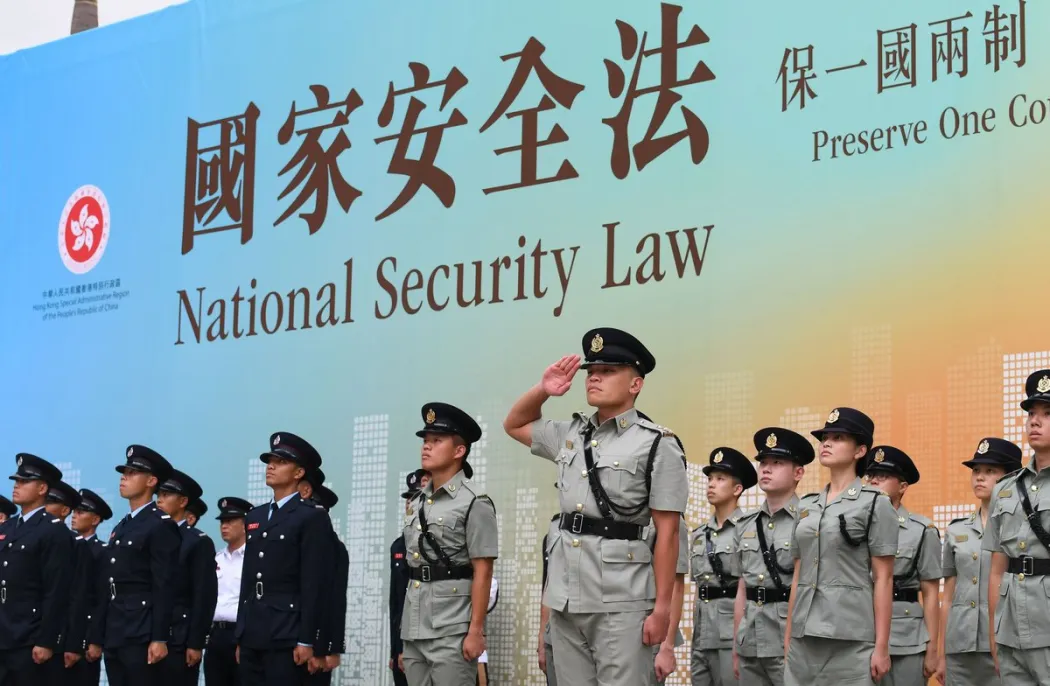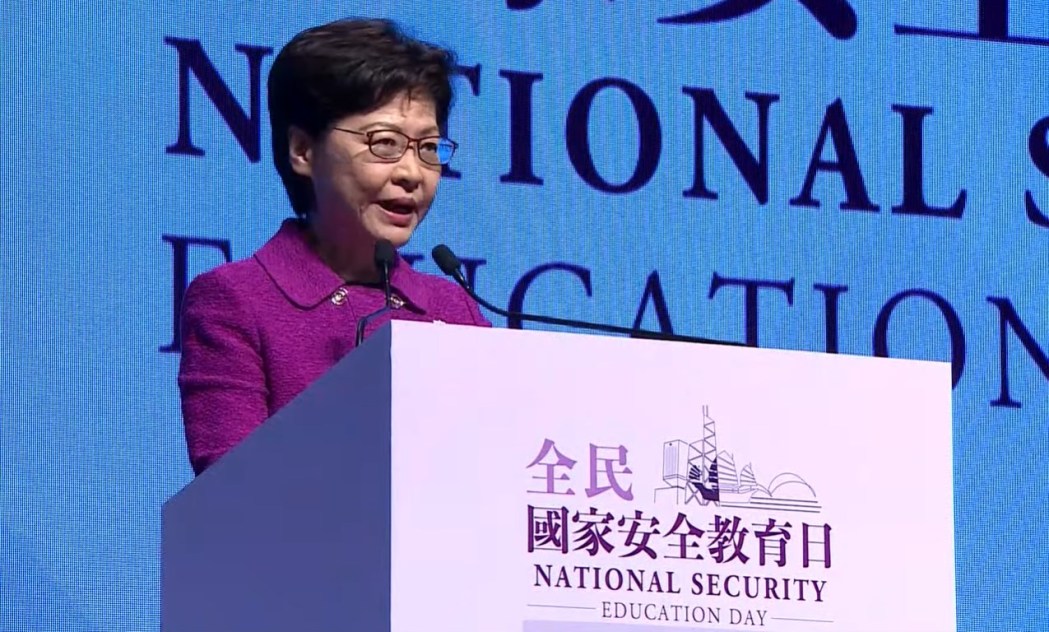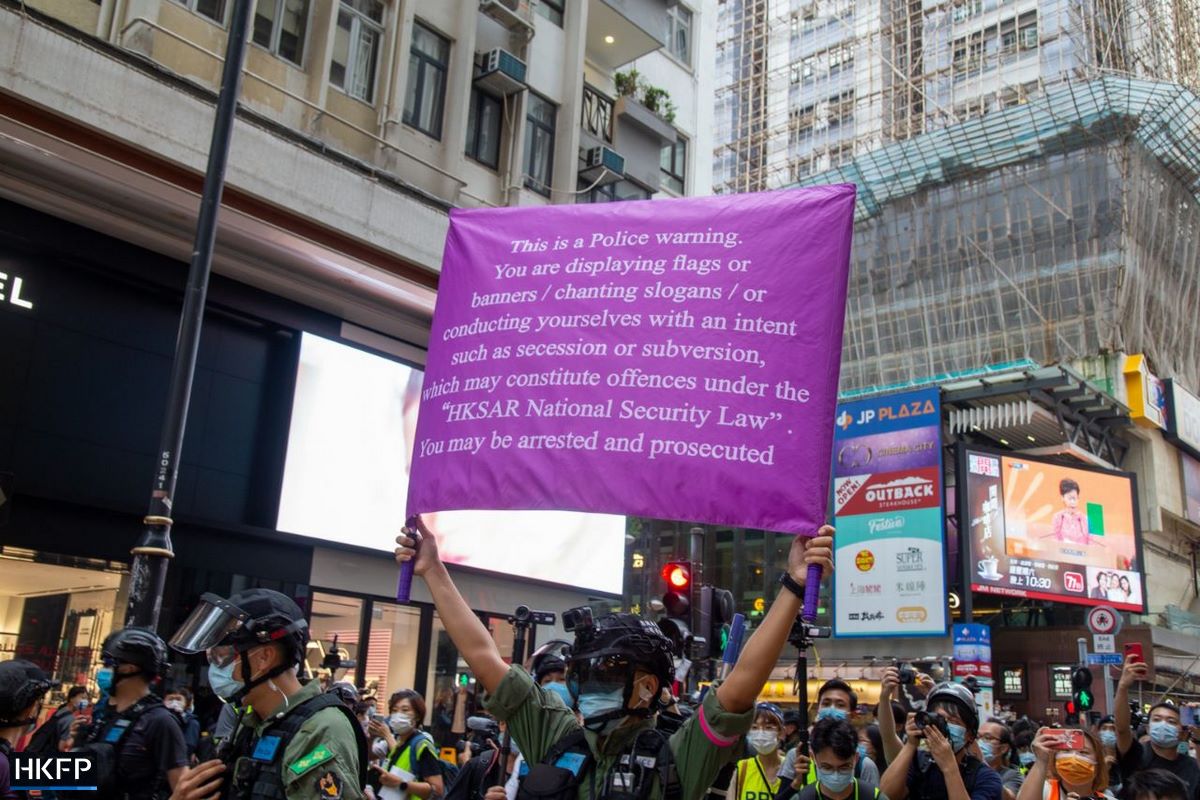Human Rights Watch has accused Beijing as “decapitating” Hong Kong’s pro-democracy movement, as the NGO issued a lengthy report on the city one year after the national security law came into force.
In a report titled “Dismantling a Free Society” published last Thursday, the human rights watchdog said that basic rights and freedoms in Hong Kong were being “erased” under the security law imposed by Beijing on June 30 last year.

The sweeping legislation, which outlaws secession, subversion, collusion with foreign forces and terrorist acts, was said to have helped Beijing “reshape” the city from being “mostly free” into being “dominated by Chinese Communist Party oppression.”
Human Rights Watch said the more than 100 national security arrests over the past year often had “dubious” justification. The apprehension of 55 pro-democracy figures in January for alleged subversion in connection with an unofficial legislative primary election also seriously undermined the campaign for democracy in the city, it said.
“Beijing has sought to decapitate Hong Kong’s pro-democracy movement,” Human Rights Watch said.
Chief Executive Carrie Lam and other government officials have hailed the sweeping law as helping the city restore stability after months-long violent protests in 2019. The authorities also said the law only targeted a “small minority of people” who endanger national security.

The NGO aired criticism against the Beijing-steered electoral overhaul, which aimed at shutting out “anti-China forces” from the local governance structure. It said that, following the revamp, the Legislative Council (LegCo) that was semi-democratic would become a “rubber-stamp body.”
“Often Beijing describes these moves as ‘reforms’ to ‘plug loopholes,’ euphemisms to attack hard-won freedoms,” the NGO said. “The ‘electoral reforms’ imposed on Hong Kong… effectively gutted the city’s competitive elections and replaced them with sham races in which only those loyal to Beijing can run for the LegCo.”
The watchdog accused the Hong Kong government of restricting free speech by banning the protest slogan “Liberate Hong Kong, revolution of our times,” which is deemed as pro-independence by the authorities.

It also alleged the government was imposing censorship upon the local arts and film sector by pulling an art piece by Chinese dissident artist Ai Weiwei from the M+ museum and taking down protest-related film Inside the Red Brick Wall from cinemas.
Hong Kong’s media was said to be subject to “overt censorship,” the watchdog said, citing a series of controversies surrounding public broadcaster RTHK and the now-defunct pro-democracy newspaper Apple Daily. The latter ceased operations last week after company assets were frozen by the government on suspicion of breaching the security law. Its founder and media tycoon Jimmy Lai, as well as five senior executives, were arrested for allegedly colluding with foreign forces.
In response to what it deemed an erosion of human rights in Hong Kong, the watchdog called on overseas governments to engage in multilateral action, including backing a call to form a special mandate at the UN Human Rights Council to monitor the human rights condition in the city.

“Work with like-minded governments in international forums to promote and defend the human rights of Hong Kong’s people,” it said.
The watchdog also called for “coordinated and targeted sanctions” such as travel bans and freezing of assets on Chinese and Hong Kong officials. Appeals for sanctions have been labelled as breaching the security legislation, as the authorities deemed such acts as collusion with foreign powers.
Support HKFP | Policies & Ethics | Error/typo? | Contact Us | Newsletter | Transparency & Annual Report | Apps
Help safeguard press freedom & keep HKFP free for all readers by supporting our team
























